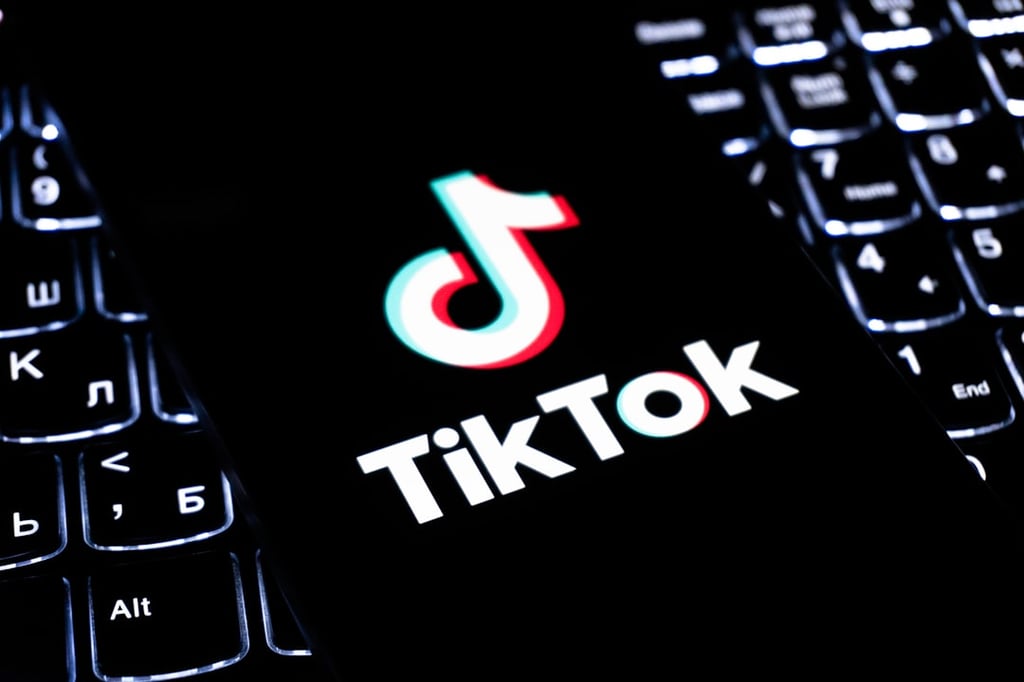Datamation content and product recommendations are
editorially independent. We may make money when you click on links
to our partners.
Learn More
It was the best of acquisitions, it was the worst of acquisitions, it was an acquisition of wisdom, it was an acquisition of foolishness…
How will history judge Google’s $12.5 billion purchase of cell phone pioneer Motorola?
I think it just might have been the biggest mistake in the company’s history. It’s clear Google bought Motorola to support and defend its Android platform. But the deal just might hurt Android more than it helps.
I’ll tell you why below. First, let’s take a look at the benefits of buying Motorola.
Why Buying Motorola Is a Good Idea
All the major cell phone hardware and platform companies are locked in an absurd battle over patents. The trouble is that cell phones are so complicated, with spectacular complexity in hardware, wireless and software technologies, that the average cell phone probably violates thousands of existing patents. It’s not possible to build a cell phone without violating patents.
Forget about patents as a legal tool to protect innovation. Patents have become mere bullets in a hot war over markets. And whoever has the most bullets wins.
Trolls buy and sell patents like pork belly futures. So do companies that innovate, like Apple, Microsoft and Google. But the patents often have no relationship to the innovation. They’re just ammo.
Google is currently a mobile phone platform company that makes no mobile hardware. Like all mobile platforms, Android probably violates a gazillion patents. But instead of suing Google, for the most part, both trolls and Google’s competitors have found greener pastures in going after Google’s handset partners.
Most of the lawsuits appear to be motivated by the desire to force licensing agreements out of these partners. So even though Android is free, some companies that use it are paying other companies like Microsoft for using technology built into Android.
All this patent stupidity has got all the deep-pocket companies scrambling for acquisitions — not for the business, but for the patent portfolios. Everybody wants to patent up either to enable the extraction of licensing revenue, or to protect against such extraction.
Patents are also negotiating chips. Whenever companies negotiate license fees, the respective balance of patent power increasingly determines price.
And that’s why Google bought Motorola. The company empowers Google with a patent portfolio 17,000 patents strong.
Buying Motorola and continuing to run it as an ongoing business, rather than, say, buying the bankrupt and defunct Canadian telecom company Nortel Networks, is vastly superior for Google.
Not only does Motorola come with more and better patents, it’s still churning out new patents year after year. If the Nortel deal would have been like buying a truck-load of milk, the Motorola deal is like buying three truck-loads of milk — plus a herd of dairy cows.
Viewed purely from the patent portfolio perspective, acquiring Motorola is a great idea for Google.
Why Buying Motorola Is a Bad Idea
I think Google may have miscalculated.
The company’s founders, Sergey Brin and current CEO Larry Page, are extremely rational, logical thinkers. When they make mistakes, those errors tend to have something to do with assuming other people are also rational.
But nobody is as logic- and data-focused as Google’s founders. They’re practically Vulcans.
The reasoning behind the Motorola acquisition, and why it shouldn’t bother Android partners, is that Motorola is going to exist as a competitor regardless of whether Google technical owns the company or not. And Motorola’s patent kung fu protects Android handset makers from lawsuits and licensing fees.
It makes perfect sense. It’s logical.
Unfortunately, electronics giants like Samsung are less like Spock and more like McCoy in their thinking. Their decision-making may consider “emotional” issues like pride, trust and even nationalism.
Pride: Android handset makers may feel blindsided by the Motorola acquisition. Imagine if you owned a local car dealership that sold Hondas and Mazdas, and right next door was a local Honda dealer. You’re competing with that dealership for local car buying business, but that competition is fair.
Then one day, Honda itself buys the dealership next door. How would that make you feel about all the work you’d invested into selling and servicing Hondas all these years? You might be tempted to switch to selling only Mazdas, if for no other reason than to maintain your dignity and pride.
Trust: If Google can became your competitor overnight, what else are they capable of? Google already has a reputation of changing its strategy, unceremoniously canceling high-visibility programs and projects like Google Wave, Google Answers, Dodgeball, Jaiku, Lively and others.
Even if the Motorola deal makes perfect sense, Android handset makers may lose their trust in Google as a partner.
Also: Did Google’s founders consult an expert on Korean and Japanese business culture? Asian companies tend to place far more emphasis on trust as a vital ingredient in any business partnership.
Nationalism: The handset universe use to be dominated by Canada (RIM), Korea (Samsung) and Finland (Nokia). Now the Americans are kicking everyone’s ass.
Increasingly, Apple and Google are gaining power, dictating standards and dominating the mobile scene, both in handsets and tablets. Companies like Samsung and Sony are associated in Korea and Japan with national pride. Suddenly, their American platform partner buys their American competitor. It could be interpreted as yet another power grab by America, Inc.
Google appears to be counting on rational thinking from its competitors. But emotion may play a part in the erosion of Android support.
Users are even more emotion-directed than handset makers. Many Android users are loyal to the Android brand, and have formed an emotional attachment to Android that’s bound up in their self-identity. It’s similar to the fanboy mentality that dominates Apple enthusiasm.
This illogical affinity toward Android means fans are more “attached” to Google than to Samsung, HTC or others. Google and Android loyalty could translate to a preference for Motorola phones and tablets. Android fans may assume, rightly or wrongly, that Google’s company will make the best tablets, have the latest features and be engineered more expertly to run Android than handset makers that are not owned by Google.
This affinity for Android and Google gives Motorola an enormous advantage — and the third-party partners an equally enormous disadvantage. And even if it doesn’t, Google’s Android handset partners have reason to suspect it might.
Google intends to buy Motorola to boost the Android environment. But the whole deal may have been Google’s biggest blunder ever.
-
Ethics and Artificial Intelligence: Driving Greater Equality
FEATURE | By James Maguire,
December 16, 2020
-
AI vs. Machine Learning vs. Deep Learning
FEATURE | By Cynthia Harvey,
December 11, 2020
-
Huawei’s AI Update: Things Are Moving Faster Than We Think
FEATURE | By Rob Enderle,
December 04, 2020
-
Keeping Machine Learning Algorithms Honest in the ‘Ethics-First’ Era
ARTIFICIAL INTELLIGENCE | By Guest Author,
November 18, 2020
-
Key Trends in Chatbots and RPA
FEATURE | By Guest Author,
November 10, 2020
-
Top 10 AIOps Companies
FEATURE | By Samuel Greengard,
November 05, 2020
-
What is Text Analysis?
ARTIFICIAL INTELLIGENCE | By Guest Author,
November 02, 2020
-
How Intel’s Work With Autonomous Cars Could Redefine General Purpose AI
ARTIFICIAL INTELLIGENCE | By Rob Enderle,
October 29, 2020
-
Dell Technologies World: Weaving Together Human And Machine Interaction For AI And Robotics
ARTIFICIAL INTELLIGENCE | By Rob Enderle,
October 23, 2020
-
The Super Moderator, or How IBM Project Debater Could Save Social Media
FEATURE | By Rob Enderle,
October 16, 2020
-
Top 10 Chatbot Platforms
FEATURE | By Cynthia Harvey,
October 07, 2020
-
Finding a Career Path in AI
ARTIFICIAL INTELLIGENCE | By Guest Author,
October 05, 2020
-
CIOs Discuss the Promise of AI and Data Science
FEATURE | By Guest Author,
September 25, 2020
-
Microsoft Is Building An AI Product That Could Predict The Future
FEATURE | By Rob Enderle,
September 25, 2020
-
Top 10 Machine Learning Companies 2021
FEATURE | By Cynthia Harvey,
September 22, 2020
-
NVIDIA and ARM: Massively Changing The AI Landscape
ARTIFICIAL INTELLIGENCE | By Rob Enderle,
September 18, 2020
-
Continuous Intelligence: Expert Discussion [Video and Podcast]
ARTIFICIAL INTELLIGENCE | By James Maguire,
September 14, 2020
-
Artificial Intelligence: Governance and Ethics [Video]
ARTIFICIAL INTELLIGENCE | By James Maguire,
September 13, 2020
-
IBM Watson At The US Open: Showcasing The Power Of A Mature Enterprise-Class AI
FEATURE | By Rob Enderle,
September 11, 2020
-
Artificial Intelligence: Perception vs. Reality
FEATURE | By James Maguire,
September 09, 2020
SEE ALL
ARTICLES







